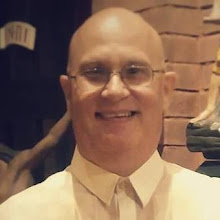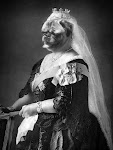A sultry Saturday evening in KC extended its grip inside the venerable Lyric Theatre last night, the vintage AC units straining to cool the vast space. Perhaps the old building was groaning out a last protest towards its imminent demise as a performance space. Nevertheless, the show goes on and frequent guest Juanjo Mena was on hand to lead the Kansas City Symphony in a program of Grieg, Beethoven and Schumann. German pianist Markus Groh was the soloist in the Beethoven 3rd Piano Concerto.
Opening this program of music firmly rooted in the 19th century was the Lyric Suite op 54 by Grieg. One of Grieg's greatest accomplishments is that of his set of 66 Lyric Pieces for piano composed in 10 books from 1867 to 1901. Many of them such as Wedding Day At Troldhaugen, To Spring, March of the Trolls, and Butterfly are known to just about anyone who studied piano. Many of the little pieces have been arranged for orchestra but the set from op 54 (Shepherd Boy, Norwegian March, Nocturne and March of the Trolls) is most often performed and recorded.
A hint of shaky string intonation at the very beginning of the lyrical and passionate "Shepherd Boy" did not bode well, and indeed one could have asked for a bit more flexibility in phrasing and some harp to penetrate the string only texture. The "Norwegian March' came together well with some excellent as usual woodwind work (the recurring little clarinet figures for example), the brass were foreboding but never overwhelming. "Nocturne" could have used a bit more flow and grace but was redeemed again by fine winds. The final "March of the Trolls" must be great fun to play and the orchestra came to life with a perfect blend of macabre and bouncy enthusiasm.
In his 3rd Piano Concerto from 1800, Beethoven said Auf Wiedersehen to the more elegantly formal concerti of Haydn and Mozart and set about writing a most symphonic concerto. The opening orchestral tutti is a fully argued symphonic statement in and of itself, not merely a flourish filled opener. The piano is more fully integrated into the orchestral texture and is key to introducing new themes and setting a movement's tempo. This emphasis on symphonic argument and development renders this Beethoven's least "flashy" and, ultimately for me, most satisfying concerto. Groh and Mena and the orchestra seemed to agree with this assessment, milking all the subtle yet frequently palpable drama from the work. Groh's first movement cadenza was a perfect example of this, well integrated into the whole fabric, alternatively sweetly lyrical and boldly flashing.
The Largo, in all intents and purposes a nocturne worthy of Chopin, second movement begins with a simple prayer and ends with an elaborate song of praise. Groh's tone and rhythm was fluid and graceful, never slack, allowing the piano to sing its long, winding phrases. The orchestra mostly accompanies and comments in this movement and the forces well knew their role.
Groh launched into the fleet and spicy rondo with abandon, the orchestra following close behind, but getting overwhelmed in the brisk final measures. Groh tossed off the runs with grace and style, but unlike the unbeatable master Leon Fleisher, he didn't give the complex runs the subtle variations in tempo and emphasis that marks a superb performance.
Thankfully, someone got to the audience and there was no applause between movements as has been the custom as of late. Maybe they were too hot.
I rate Robert Schumann along with Brahms as one of those colorless, foursquare mid 19th century composers whose music just does not speak to me. I know many, many disagree with me, but it is what it is with me, dear readers. Thus a performance of Schumann's Symphony # 4 (not really his last, but as with many composers of his era, the numbering is AFU) was not my idea of a grand time on a hot summer night in a hot old theatre. Thankfully, Mena and the orchestra felt otherwise and delved into the score with relish. The first movement was perfectly dramatic, the brass forceful but never making the texture even more dense. The short Romanze was fine and Mena used just the right amount of tempo and dynamic change to relate the movement back to the introduction of the first movement, making them one grand gesture. Of course the whole symphony is played without much or any pause, making the whole thing one mega-sinfonia. A breezy and well articulated scherzo followed with some fine rhythmic string work from the strings. If the strings go slack, the whole shebang becomes even more turgid, and that certainly was not the case last night. Mena seemed to really relish the Viennese waltz segments of the scherzo's trio. The strings and brass were majestic in the grand transition from the scherzo to the finale, bringing the work to a fine conclusion.
Ok, maybe a better piece than I give it credit for (Schumann, especially his fabulous 2nd Symphony is a rung above Brahms in my book anyway) especially when an orchestra and conductor give a fine performance to an audience that by the end of the stifling evening seemed to want to just get on with it.
As for those who are bristling with my Schumann bashing, note that I actually have and sometimes actually listen to 4 Schumann Symphony sets in my collection, Szell/Cleveland, Bernstein/NYP, Dohnanyi/Cleveland and Chailly/Leipzig with Mahler's "Retuschen" that I actually find interesting, further infuriating the Schumann fans in the crowd.
Only one more concert series to go in the old Lyric Theatre in a couple weeks. Hopefully Helzberg Hall will have better HVAC than the old Lyric, or maybe as I said, the old girl is just shooing us out.
Sunday, June 05, 2011
Subscribe to:
Post Comments (Atom)



No comments:
Post a Comment